written by Amy Faust | photos by Andy Batt
Documentary filmmaking is not for the fainthearted. To get the shot, you might need to huddle in a melting ice cave, follow a junkie as he scores his next fix, or interview your own mother about something she’s never talked about before. You might spend years of your life working to tell just one story, only to find that it ends up being completely different than the one you set out to tell. You’ll probably have to start a project having no idea where the money will come from to complete it. But along the way, you get the chance to venture deep into other worlds, inhabit the lives of other people and tell stories that can inspire real change.
Once a medium that thrived only in film-centric big cities such as New York and Los Angeles, documentaries can now be produced virtually anywhere thanks to digital technology. Each year, Oregon sees a larger bumper crop of compelling non-fiction films, from film short to feature length. Tim Williams, a recent transplant from New York and LA who now directs the Oregon Film Office, said he is not surprised to find such creative bounty here.
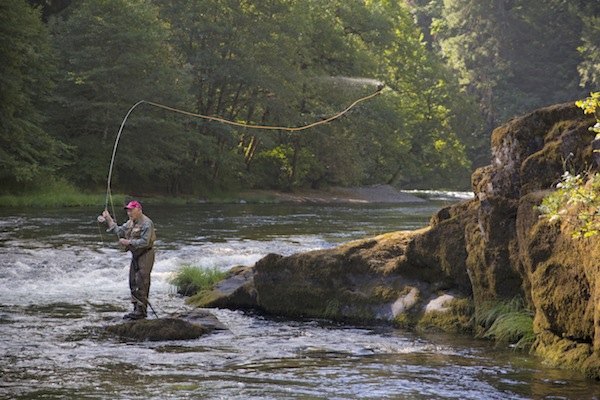
“It’s a can-do state like I’ve never seen,” said Williams. “People here really have no compunction or reservation about tackling difficult things. And I think that’s what makes an amazing documentary, is that you dive in, you figure out what the story is and you present it to people so that they can feel the same thing.”
The stories that have emerged from local filmmakers in recent years are incredibly varied, ranging from intimate, local, personal subjects to chronicles of international issues. The common thread, as Williams sees it, is Oregon filmmakers’ ability to tell a story that is not easily told. He also believes that people who live in such a “picturesque and inspiring state tend to create work that has a majesty to it.”
Majestic results, however, do not stem from an easy process. To complete their projects, most documentarians function, at one point or another, as fundraiser, researcher, producer, writer, camera person, interviewer, editor, publicist and more. This labor-of-love can take anywhere from one to ten years, and requires an unwavering belief that the world needs to see the story. Unfortunately for most, it requires an alternate source of income. There are few Oregonians who successfully make their living on documentaries alone. Most round out their portfolios with commercial work or hold down jobs in other fields.

The changing media landscape of the last decade has made it both easier and harder for filmmakers to complete projects and find audiences for their work. Crowdfunding platforms such as Kickstarter and IndieGoGo help drum up grassroots financial support, but have also created a glut of projects competing for attention. While platforms such as Netflix and Vimeo bring documentaries to a wider audience, it’s harder than ever for a small film with a limited promotional budget to break through the clutter and get people’s attention.
The field seems to be evolving to survive. Williams is encouraged by the ways filmmakers are finding financial support and audiences for their projects. He points to companies that create “passion projects” and then find relevant corporate sponsors that attach their names and distribute them as branded content. Many Oregon filmmakers also rely on grants from the Regional Arts and Culture Council, and rebates from the Oregon Film Office for local projects. Some leverage social media by creating buzz for screenings, even packing up and traveling from town to town, booking theaters along the way.
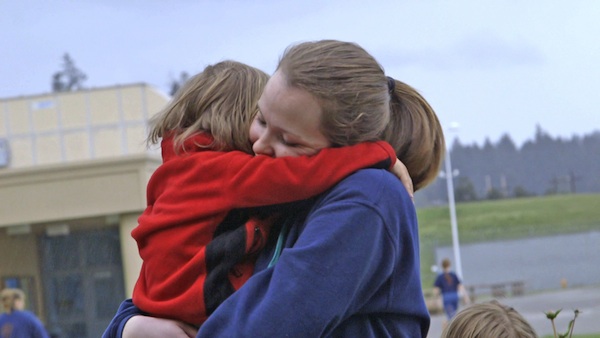
With so little hope for financial return and with audiences more elusive than ever, how do documentary filmmakers persevere? Aside from the creative satisfaction that comes from telling a story in such a visual medium, there’s the possibility of broadening people’s perspectives and mo- tivating them to action. “I firmly believe that a good documentary can change the world if you do it correctly,” said Williams.
The Award Winner
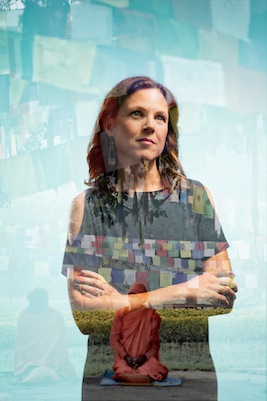
She may not have an “EGOT”—the fabled Emmy/Grammy/Oscar/Tony combination of “30 Rock” fame—but Irene Taylor Brodsky comes close. With an Emmy, a Peabody and an Oscar nomination on her résumé, Taylor Brodsky generally has little trouble finding outlets for her work, which appears frequently on HBO.After “ejecting” from her native New York in 2002 and coming to Portland with her husband “on an impulse,” it was an Oregon friend who pointed her toward the subject that would inspire her breakout film. When her parents, both born deaf, made the bold decision to get cochlear implants together so they could hear, Oregon Public Broadcasting producer Eve Epstein asked Taylor Brodsky, “Why aren’t you making a film about them?”
“I was completely blind to the fact that my parents were great characters,” she said.
Hear and Now, a deeply personal account of her parents’ transition and emotional struggle, was funded in part by a concert thrown by her friends in the band Pink Martini. Once the film aired on HBO (and won a Peabody Award), Taylor Brodsky said it set things in motion for her to begin making films full time.
Ten years later, she is coming full circle with her current project Open Your Eyes, a story she stumbled upon while traveling in Nepal. Hiking in the mountains with an organization that treats cataracts, she encountered an elderly married couple, both blind, who qualified to have free cataract surgery to see again. Musician Peter Gabriel liked the film so much that he wrote a song for it called “Open Your Eyes.”
Taylor Brodsky loves the personal aspect of documentary filmmaking. “I get to become completely immersed in a universe that has its own tempo, its own culture,” she said. “I would hope that my films reflect the extent that I understood that universe.”
The Game Changer
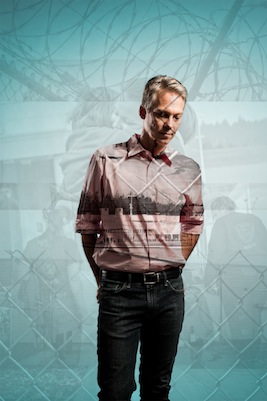
Brian Lindstrom doesn’t set out to change people’s minds when he starts a project. “I like to make films that ask questions rather than answer them,” he said. Still, because of the type of stories he tells, minds do change and perspectives broaden. The native Portlander has covered subjects such as recovering addicts struggling with sobriety (Finding Normal), incarcerated women trying to parent their children (Mothering Inside), and the humanizing backstory of a mentally ill Portland man, James Chasse, who died in police custody in 2006 (Alien Boy).Finding Normal was the first documentary film that the Oregon penitentiary system ever showed to inmates in solitary confinement. As prisoners watched addicts achieve sobriety by working with mentors, Lindstrom said, “they were recognizing people they actually knew in the film, and saying to themselves, ‘If he could get clean, maybe I could.’”
Mothering Inside profiles female inmates at the Coffee Creek Correctional Facility in Wilsonville who get to spend extra time with their children as part of a parenting education program. Even though participants had an impressive 0 percent recidivism rate over its four years, the state cut the program midway through filming. Lindstrom rushed to finish the film, and after the Oregon Film Office screened it for legislators, the state voted to reinstate the program.
Drawn to film by his belief that all people’s stories matter, Lindstrom said that for him the biggest reward of making documentaries is showing the finished product to the subjects. “I make my films for the people in the films,” he said. “It’s a way of saying, “your life matters, you have all this inner strength and inner beauty that maybe you don’t see but the audience will.’”
It’s a big proposition for these people, Lindstrom said. “They’re sharing this crucial part of themselves, but there’s something about that catharsis that creates a bridge and creates conversations that otherwise would never happen,” he said. “Out of those conversations, I think real change happens.”
The Freshman

After going back to school as a working mother of two, Melissa Lowery found the subject for her first film right at home. The only African-American kids in their class in Hillsboro, her daughters came home from school one day and asked her why their hair was different. Lowery decided to draw on her own experience as one of four black students at West Linn High School in the ’90s to create a film exploring what it means to be a Black Girl in Suburbia.
“I really was just making the movie for my girls to show them that they’re not alone in their experience,” said Lowery. “Then I Googled ‘black girl in suburbia,’ and nothing popped up. That’s when I realized that this story hadn’t been told yet.”
Working with a crew she had met studying media at Pacific University in Forest Grove, she made a trailer and launched a successful Kickstarter campaign. When Lowery posted her trailer to YouTube, the first comment she received was a racial slur. But then comments started filtering in from all over the country. “Women were writing, ‘I’m crying right now.’ ‘This is my story,’” she said.
Five years later, she completed her project. Now screening it for groups and facilitating discussions has become a part-time job. “This is all a new process for me, and I didn’t realize it would become what it’s become,” said Lowery. “I call it my third child because I spent all of this time creating it, and now I get to sit back and say, ‘Look at what it’s doing!’”
The Outdoorsman
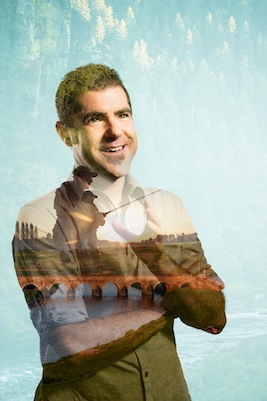
As a science teacher at David Douglas High School in Portland, John Waller liked his job, but didn’t love it. What he did love were the videos chronicling his outdoor adventures that every summer he shot, edited and shared with his friends. One career change later, along with photographer Ben Canales, he co-founded Uncage the Soul Productions, a company specializing in telling stories through scenic cinematography.Waller and Canales have been successful in creating a business model where, “Seventy-five percent of jobs have paying clients and the other 25 percent are passion projects with no fiscal backing and no expectations of profit,” Waller said. Their first feature-length documentary, Mending the Line, follows Frank Moore, a World War II vet, to France, where he fly-fishes the rivers he encountered as a soldier after D-Day.
Another passion project from Uncaged the Soul is Requiem of Ice, a breathtakingly beautiful short film about the disappearing ice caves on Mt. Hood. “It was brutal film-making,” recalled Waller, “but it was such an extraordinarily visual place, and it’s a place that, in a very short time, was not going to exist … There’s something about the opportunity to haul hundreds of pounds of gear up into the middle of nowhere and be challenged at every angle to create beautiful content.”
Waller, who teaches DIY classes at NW Documentary, said Portland has a great combination of resources for anyone willing to take the plunge. “There’s a huge interest in the art of storytelling here,” he said. “Add the passion, the resources and the people, and Portland is a real hub for documentary filmmaking.”


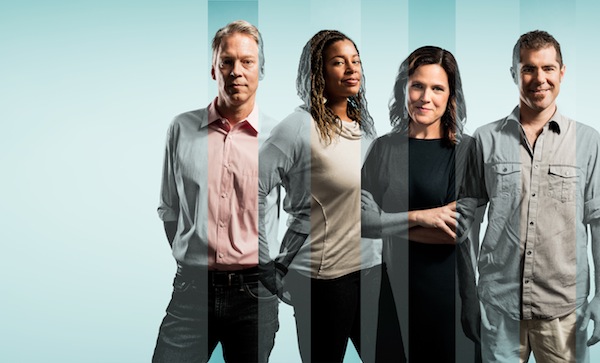
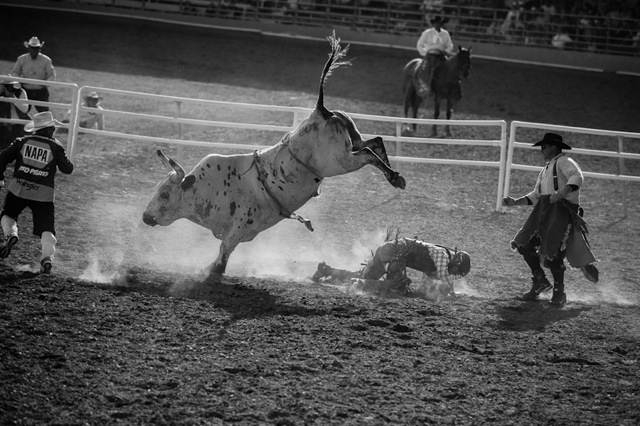
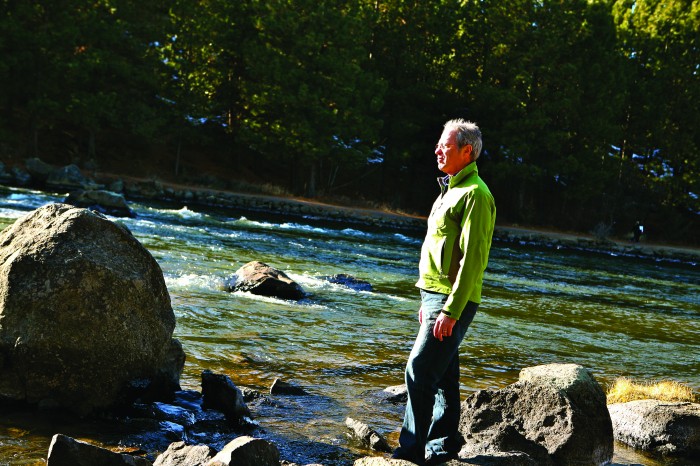
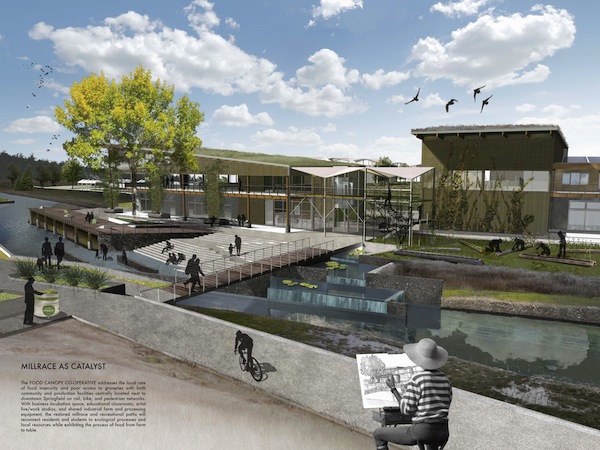
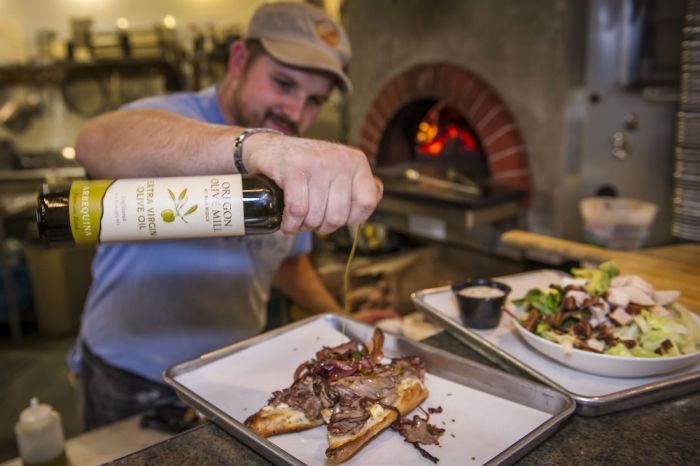



Amy unveils the very truth that her subjects beleive:
"…Even though participants had an impressive 0 percent recidivism rate …, the state cut the program midway through filming. Lindstrom rushed to finish the film, and after the Oregon Film Office screened it for legislators, the state voted to reinstate the program.
“I firmly believe that a good documentary can change the world if you do it correctly.”
Hello and thanks for your interest (yes, Pat, it's YOUR Amy!) As for finding these great films, the print version of the article has more info about that. I would suggest liking these filmmakers' companies and/or projects on Facebook…all of them do a great job of getting the word out about when and where you can see their work.
Is this MY Amy Faust, Creativity Queen? Great story, I hope to find all those films.
I’m thrilled and gratified to see my son honored here! John started Uncage the Soul Productions on his own, a true leap of faith. Ben came in later, and the two of them are indeed a fabulous team!
I loved John Waller’s doc, ‘Mending The Line’—I can’t wait to see ‘Requiem of Ice’……and he is right about the love of storytelling here. I am sorry you didn’t mention Courtney Herman and KB Elliott’s Prairie Dust Films. Amazing stuff. With such heart, precision and talent!
how can I find these films? are they available online?
I really thinks it takes courage, fearlessness and a positive perceverence in believing that our story can influence and motivate others in searching the meaning of their own existence and how they can enhance our earth journey and make others aware of such mundane situation can become the epiphany they needed to continue in their search journey for spiruality and expansion of the soul.